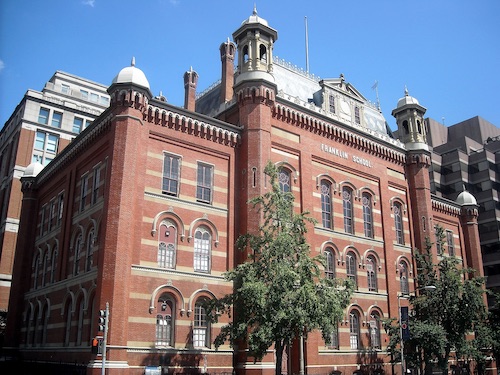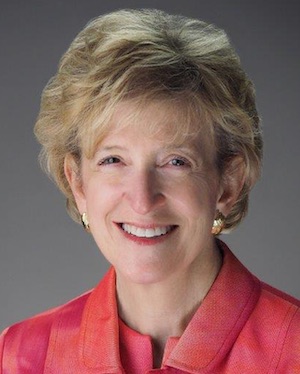By Bilal Siddiq
Digital media is all the rage with images and videos dominating much of our attention, but the spoken and written word are the underlying fabric tying us all together, giving us all a common reference point and a unique perspective on the world.
Such is the spirit that infuses Washington, D.C.’s latest museum, Planet Word, an institution dedicated to spreading love and appreciation for written and spoken language. Visitors can engage in oral storytelling, learn the nuances of telling a joke, engage in rhyming exercises, sing famous songs, and learn the origins of common English words as well as other languages, all in one place. Opening some five months after Covid-19 scuttled its planned debut, the museum is practicing strict social distancing and health precautionary measures as visitors arrive to experience the magic and wonder of language in the museum for the first time.
Founded by philanthropist and Phi Beta Kappa alumna Ann Friedman, Planet Word takes inspiration both from her career as a first-grade teacher and the Museum of Mathematics in New York City. The location of the museum is itself significant in the history of language. The Franklin School, a landmark that was built in 1869, is the site of the first wireless voice call by Alexander Graham Bell in 1880. Friedman entered a public bidding process to restore and rehabilitate the building in return for a 99-year lease. Friedman looked at a variety of sites, including ordinary commercial buildings, but determined that the Franklin School best met the museum’s needs. Her proposal was selected, and she was awarded the lease by D.C. Mayor Muriel E. Bowser on behalf of the city.

Underpinned by six core values, the museum presents itself as fun, playful, unexpected, motivational, meaningful, and inclusive. Planet Word, interestingly enough, promises to “Show, not tell,” visitors about language. In this sense, the museum will merely demonstrate how language is used and what forms it takes rather than dictating how to use it. This kind of experimental approach borrows from both the arts and sciences.
Indeed, Friedman credits the Museum of Mathematics’ hands-on and experientially driven programming with the core ideas behind Planet Word and its mission to celebrate language as well as offer immersion in it. This is also evidenced in the museums’ tongue-in-cheek approach to language that mirrors the science center vibe. The markedly youth-centric approach is both disarming and inviting, removing the artificial barriers that learning a language sometimes entails, even if it is one’s own.
Yet the museum’s mission does not end at its doors, and necessarily so.
As the museum’s website points out, literacy rates in the United States are appalling for a first-world nation, with 32 million people illiterate and a whopping 1 in 3 fourth graders unable to read at a basic level according to national testing. This is one of Friedman’s main reasons for founding the museum, as she asserts that a strongly literate society is paramount to maintaining a democracy. This museum is part of her effort to reverse the trends she is witnessing. Friedman maintains that our nation has experienced four years in which “words were used to divide us through name-calling and bullying” and “scientific evidence and critical thinking and expertise were devalued,” she said.
The museum plans on working with local organizations and beyond to assist low-literacy adults as well as children in a safe learning environment that encourages exploration and experimentation. To facilitate this, the museum is packed full of monitors, tablets, and styluses that deliver both a hands-on approach as well as a meaningful and enriching set of lessons for learners. Everything is participatory and inviting to the audience.
Friedman credits her liberal arts education with guiding her to being “open-minded and knowledgeable about other ways of life and perspectives and curious to always keep learning, reading, and studying,” she said.
Ultimately, Planet Word is a unique and sorely needed innovation. It represents an attempt to bring together technology and the various disciplines that comprise the field of linguistics to capture their “visitors’ imaginations and focus their attention on the marvels of words and language,” Friedman said. This, coupled with their policy of free general admission, is designed to extend these benefits to all.
While the conditions imposed on visitors due to the novel coronavirus had somewhat of a dampening effect, the opening was also a bright light this year. The museum’s mission is more important now in the era of distance learning and online education than ever before.
Bilal Siddiq earned his bachelor’s degree in neuroscience from Rhodes College in Memphis, Tennessee, where he was inducted to Phi Beta Kappa in April 2020. Rhodes College is home to the Gamma of Tennessee chapter of Phi Beta Kappa.




